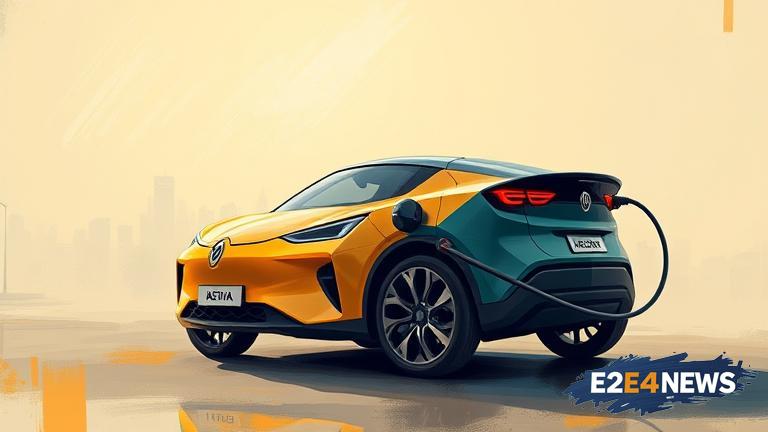The Indian government has announced a comprehensive plan to promote the adoption of electric vehicles (EVs) in the country. The plan includes a range of incentives and initiatives to encourage the use of EVs, including tax breaks, subsidies, and investment in charging infrastructure. The government aims to have at least 30% of new vehicle sales be electric by 2030. To achieve this goal, the government will provide subsidies to manufacturers to produce EVs, as well as to buyers to purchase them. Additionally, the government will invest in the development of charging infrastructure, including the installation of charging stations along highways and in cities. The plan also includes measures to promote the use of EVs in public transportation, such as buses and taxis. The government will provide subsidies to state governments to purchase EVs for public transportation. The plan is expected to have a significant impact on the environment, as EVs produce zero emissions and can help reduce air pollution in cities. The government also expects the plan to create new job opportunities in the EV manufacturing sector. The plan has been welcomed by the automotive industry, which sees it as a major opportunity for growth. Several major automakers have already announced plans to launch EVs in India, including Tata Motors, Mahindra & Mahindra, and Hyundai. The government has also announced plans to develop a network of charging corridors along highways to facilitate long-distance travel in EVs. The plan is part of the government’s broader strategy to reduce dependence on fossil fuels and promote the use of renewable energy. The government has set a target of generating 40% of the country’s electricity from non-fossil fuels by 2030. The plan is also expected to have a positive impact on the economy, as it will reduce the country’s reliance on imported oil and promote the growth of domestic industries. The government has announced plans to invest in research and development to improve the efficiency and range of EVs. The plan has been praised by environmentalists, who see it as a major step towards reducing air pollution and promoting sustainable transportation. However, some experts have raised concerns about the feasibility of the plan, citing the high cost of EVs and the lack of charging infrastructure. Despite these challenges, the government is confident that the plan will be successful and will help India become a leader in the global EV market. The plan is expected to be implemented in phases, with the first phase focusing on the development of charging infrastructure and the promotion of EVs in public transportation. The government will also establish a task force to monitor the implementation of the plan and provide feedback to manufacturers and buyers. The plan has been welcomed by consumers, who see it as a major opportunity to reduce their carbon footprint and save money on fuel costs. Overall, the plan is a major step towards promoting sustainable transportation in India and reducing the country’s dependence on fossil fuels.





